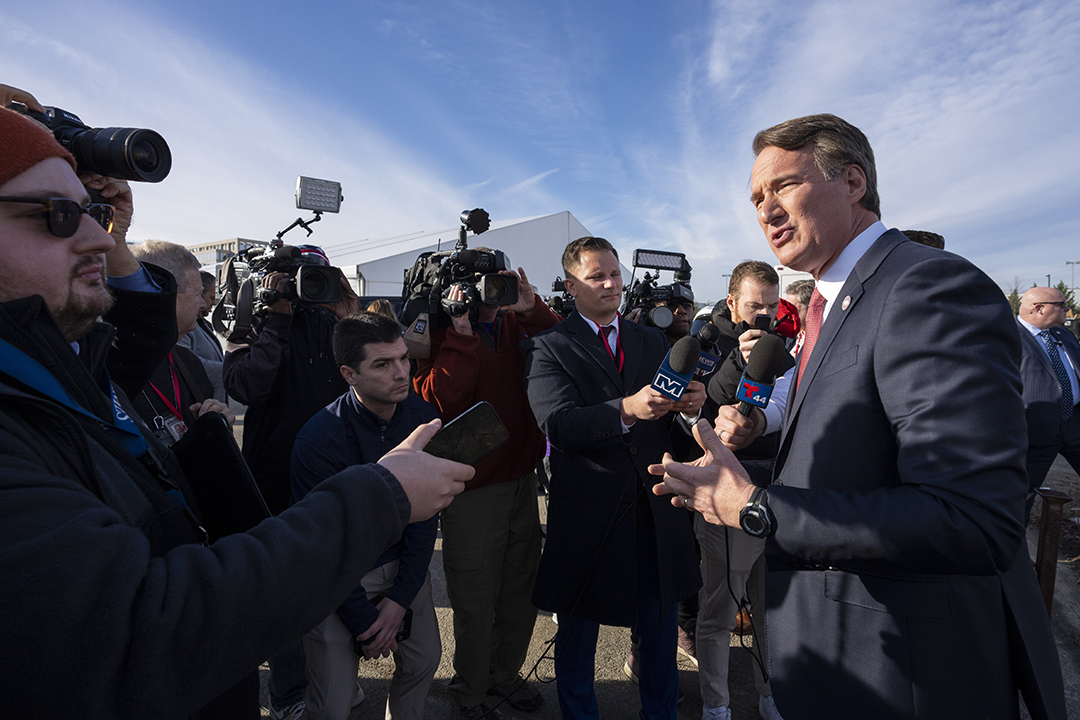Richmond-based Atlantic Union Bank’s parent company announced Monday that the Federal Reserve’s Board of Governors has approved its acquisition of Danville-based American National Bankshares, holding company of American National Bank and Trust. The Fed’s signoff was the last regulatory approval needed for the merger — announced in July 2023 — to close on April 1, according to Atlantic Union CEO John C. Asbury.
Before the Fed’s board issued its decision Friday, American National shareholders and the Virginia State Corporation Commission‘s Bureau of Financial Institutions gave their approvals of the proposed acquisition.
“We are pleased to have received all of the regulatory and shareholder approvals necessary to close the merger, and we plan to close the transaction on April 1, 2024, subject to the satisfaction of customary closing conditions,” Asbury said in a statement Monday.
The impending merger, which is expected to create a bank with total assets of $24.2 billion as of Dec. 31, 2023, $18.5 billion in deposits and gross loans of $16.5 billion, was initially expected to be completed during the first quarter of 2024, so the April 1 closing date represents a slight delay.
American National, which was founded in 1909, has 26 branches in Virginia and North Carolina and is Virginia’s ninth largest bank. It had $3.1 billion in assets as of June 30, 2023. Atlantic Union is the largest community bank headquartered in Virginia, with 109 branches, $20.6 billion in assets and $15.7 billion in deposits as of June 30, 2023. (McLean-based Capital One Financial is the largest bank headquartered in Virginia, with $36.8 billion in 2023 net revenue and $478.5 billion in total assets as of Dec. 31, 2023.)
Asbury said in an interview Monday with Virginia Business that the banks had the legal opportunity to close the deal 15 days after the Fed’s approval, in mid-March, but that it was preferable to close on the first of the month, and the closing date in April will not delay the planned systems conversion over Memorial Day weekend.
In July 2023, Asbury said that there was some overlap of the two banks’ branch locations in the Roanoke and Rocky Mount areas, which could lead to consolidation. “It makes no sense to have two branches operating. There will be some degree of [staffing] impact,” Asbury said, but, aside from those “pretty limited” examples of overlapping branches, “we certainly are not interested in limiting convenience” and closing more branches. He also said that there were no plans to close American National’s Danville headquarters, where Haley expects to maintain an office.
The Federal Reserve’s decision echoed Asbury’s comments, noting that Atlantic Union represented to the central bank’s board that “branch closings and consolidations may occur in connection with the proposed transaction. AUB [Atlantic Union Bank] asserts that any closures and consolidations would be due to geographic overlap between branches … [and] any consolidations should not have a significant effect on the services that customers of the consolidating branches currently receive.” The decision concludes that the combined bank would be stable and continue to face competitors in its markets.
Asbury said Monday that he expects to close seven branches total, including American National’s office in Christiansburg, which is within line of sight of Atlantic Union’s branch. In Rocky Mount, Atlantic Union’s downtown branch office will close, but the combined bank will keep American National’s Rocky Mount branch open because it is more active. A drive-through teller office at the shuttered downtown location will stay open, Asbury said. Other branches that are being consolidated are in West Salem, Cave Spring, Lynchburg, Danville and Greensboro, North Carolina.
He added that 70% of American National’s employees have been offered jobs in the combined bank, and the remaining 30% will be prioritized for jobs that arise in coming months. American National’s headquarters office in Danville will remain open, and Jeff Haley, American National’s president, CEO and chairman, will be based there as he serves as a consultant for the next two years, Asbury said.
“We see Danville as a very good clustering of talent,” he added Monday. “So we will have people based in Danville in roles that we might otherwise hire in Richmond.”
Also of note in the deal, Asbury said, was the fact that the American National was healthy at the time the acquisition was announced. In the spring 2023, Silicon Valley Bank, Signature Bank and First Republic Bank all suddenly collapsed, causing U.S. federal bank regulators and global regulators to take action to prevent the same from happening to other banks. The two Virginia banks’ July 2023 announcement was the first higher-profile regional bank merger following the crisis that didn’t involve a distressed institution, Asbury said Monday.
This is Atlantic Union’s third bank acquisition during Asbury’s tenure, which began in 2016. Asbury said Monday that he’s “always having conversations” with smaller regional banks “who could potentially be partners,” although it’s often over a long period.
“In the case of American National, I view this as having been a five-year conversation,” he said. “Do I think there may be more opportunities in the future? I would say yes … but it is not our highest priority.”
This story has been corrected since publication.









